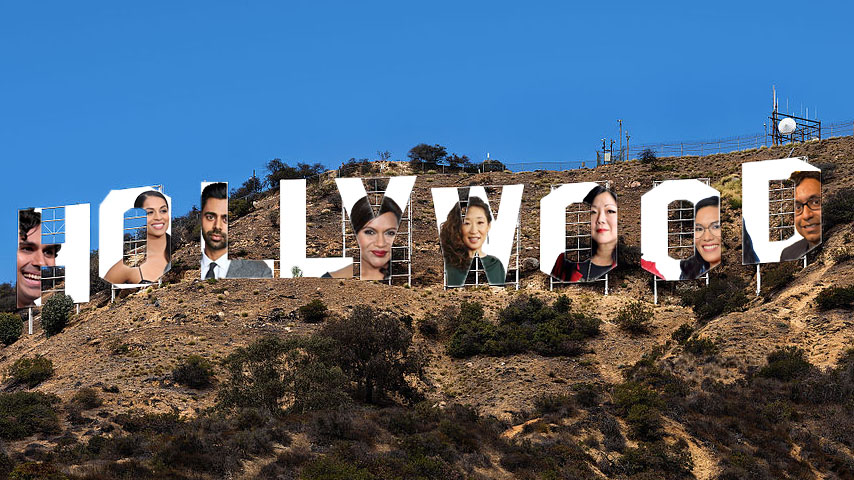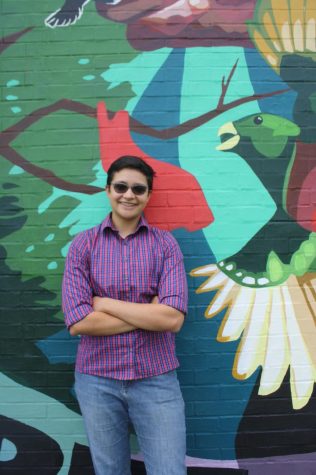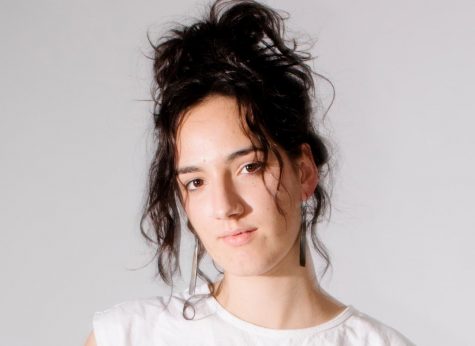Asian Americans challenge underrepresentation in television and comedy
Asian American actors and comedians are often underrepresented and not portrayed accurately in television. This has a negative effect in the real world, and it reinforces stereotypes. This graphic shows the faces of different Asian American comedians and actors. Nadia Gul, a student who identifies as Afghan American said, “People like me who are brown and Asian can finally be represented in the light that we want to.”
November 26, 2019
In January 2019, Sandra Oh made history. She became the first Asian American (Canadian) to ever host the Golden Globes. She was also the first woman of Asian descent to ever win more than one Golden Globe. Although she has been nominated for an Emmy award eight times, she has never won. The fact that Oh made history in 2019 as the “first Asian American” to accomplish these tasks in Hollywood is problematic; it should have happened a long time ago. This tells us that Hollywood has an anti-Asian racism problem.
According to a September 2018 article on the Emmys, racism, and lack of diversity in Hollywood in The Advocate, Oh responded to a comedy skit about her nomination by joking “It’s an honor just to be Asian.” She used this statement to both show the lack of diversity on television, specifically, and Hollywood more broadly, and as a way to own her identity. For Asian Americans, Sandra Oh stole the show with that line.
Asian American is a racial, political identity for some people of Asian descent in the United States. Being Asian American can mean coming from many diverse ethnicities, backgrounds, and cultures. Not everyone of Asian descent in the U.S. identifies as Asian American. Some people identify only with their ethnicities, while others also identify with the panethnic racial category of Asian American. Panethnic means that the term covers multiple ethnicities as part of a racial identity.
However in Hollywood, Asian Americans are often homogenized or tokenized if represented at all. When they are included there is not the wide range of experiences that is actually realistic. Nadia Gul, a senior, who identifies as Afghan American, said, “I’m brown, I’m Asian, and I’m Muslim. And I’m a Muslim woman, to make it even more specific… I wish there were more brown people that I could relate to and see. More Muslim women who were on the rise. TV show wise you never really see hijabs you mostly see Muslim women who are like Muslim by name.” The lack of representation of Asian Americans in Hollywood has been happening for a long time. Historically, Asian American characters have been racist stereotypes. One common misconception that Hollywood reinforces is that they are very rich and that they have achieved this through their hard work in comparison to other minorities. They are seen as a model minority that fits the American ideal of “pulling oneself up by one’s bootstraps.” The reality is that there is a wide range of income disparity between different Asian ethnic groups. Mr. Yu, who teaches Chinese and identifies as ethnic Chinese, said that a more recent stereotype is that, “They [Asian-American teenagers] are good students, good at math, but lousy at sports and self expression.”
On television, sit-coms, dramas, and reality television dominate. Asian Americans are often cast as a sidekick or friend, but rarely the main character. They are the laughingstock and the target of the humor, typically, rather than its author. Comedy might be a hard genre for Asian Americans to crack. Sit-coms rarely feature Asian American characters. In 1994, Margaret Cho broke this barrier as the first Asian American comedian to get her own sit-com, entitled All-American Girl. Despite starring in it, Cho said that she felt like she didn’t have any control over the series. The show only lasted for one season and was critiqued for its stereotypical characters. It whitewashed the characters while at the same time implying that Americans can’t be Asian. Eddie Anderson, a sophomore, who identifies as half white and half Korean, said, “In a lot of shows and movies and a lot of the people in Hollywood in general tend to be white. And there’s just not that many people of color in general.”
The next television network sitcom to feature an Asian American family was Fresh Off the Boat (2014-present), which aired over 20 years after All-American Girl. The show was well received and is scheduled for its sixth and final season to air in 2020. It was revolutionary in its portrayal of Asian American characters and paved the way for movies such as the huge international hit Crazy Rich Asians (2018).
On television, Mindy Kaling became famous for acting in, producing, directing and writing the sitcom The Office (2005-2012). She then proceeded to have her own show, The Mindy Project (2012-2017) on Hulu. On The Office, she was the only person of color and woman writer. Kaling critiques Hollywood for failing to recognize the contribution of women and people of color. She claims that she was forced to justify that she was a producer of the show when the show was nominated. Although the Emmy Awards nomination committee denied the claim, saying that no one person was singled out, Kaling disagrees, saying that she was targeted. Many women of color have to fight for recognition for their work. Gul said that people sometimes deny that she is Asian American, because she is also brown. She added that she wanted to see, “People like me who are brown and Asian can finally be represented in the light that we want to.”
Networks rarely take a chance on them until they reach incredible success elsewhere. Recently, Youtube star Lilly Singh became a host of the NBC show, A Little Late with Lilly Singh. Initially, Singh became famous from her Youtube channel and videos and then later did some work in music and acting. Singh was announced as one of the top 40 most powerful people in comedy in 2019 by Forbes, a business magazine.
Kaling is not the only one turning to places like Hulu. Netflix and Hulu are important platforms that Asian American comedians are using to make their mark. Netflix has begun making stand-up comedy specials that are giving individuals room to share their experiences. Comedians Aziz Ansari, Hasan Minhaj, and Ali Wong all have their own Netflix stand-up specials, movies, and/or series. Stand up comedian Ali Wong is also the voice of one of the main characters in the popular Netflix show, Tuca and Bertie, a spinoff of the popular adult animated show Bojack Horseman.
Although there is progress being made, Hollywood has a long way to go in terms of Asian American representation. Asian American actors should not be considered such rarities, featuring them should simply be the norm. Not seeing themselves represented in television can have a detrimental effect on students. Anderson said, “I think it affects them, how they see other people and maybe how they see themselves.” Mr. Yu said, “I think these stereotypes have had subtle influences on how we interact, how we perceive.”
The Asian Student Association, a club at South, works to prevent these stereotypes by providing a place for many different cultures and ethnicities to interact. According to Mr. Yu, who helps coordinate the ASA, it promotes Asian cultures, and anyone can join. They do this by hosting an annual show in the spring which features dancing and traditional clothing. Other days they meet just to talk, eat food, and play games, a safe space to have fun while connecting with other cultures.







